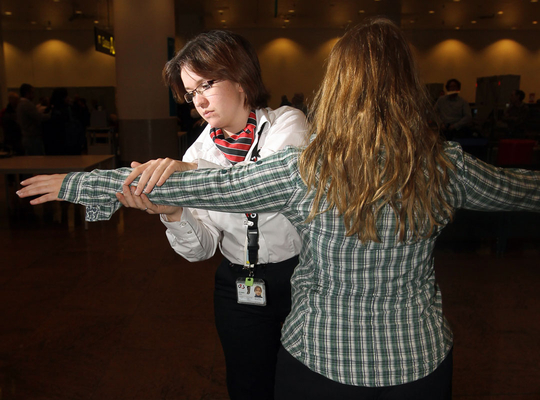You are here
Extra powers for private security firms

At the initiative of Minister of the Interior Jan Jambon, the powers of private security firms have now been widened. “In this way our police services are less burdened and they can concentrate on their core tasks better,” the Minister explains.
Specifically, a complete overhaul is taking place of the Tobback Law, which dates back to 1990. “That law was so illegible and obsolete that it was no longer clear for anybody what was possible and what wasn’t,” Jan Jambon says. The new bill eliminates a great deal of grey zones in the legislation for the sector. That sector includes not only security firms, but also alarm and camera systems installers.
Task package significantly broadened
Thanks to the new law, private security guards may from now on subject anyone at the entrance to a shop or an event to access control. The verification consists of a superficial pat-down of a person’s clothing and a visual check of any bags he or she is carrying. At sensitive sites such as ports and airports, international railway stations and nuclear installations, private security guards can also give luggage and vehicles a thorough search. If they have been deployed to protect embassies or military domains, they can also carry a weapon. ID checks are possible in all places that are not publicly accessible, such as office buildings.
In addition, private security firms are being given other possibilities. They can perform so-called sweeps during which they check buildings and sites for the presence of drugs, weapons, explosives or espionage equipment. The police services will also be able to ask them for technical assistance, for example in the operation of drones with cameras. However, the decision to proceed with an intervention will still remain the police’s. Finally, private security firms can also view images originating from cameras in public locations, albeit at all times under the supervision of the police.

